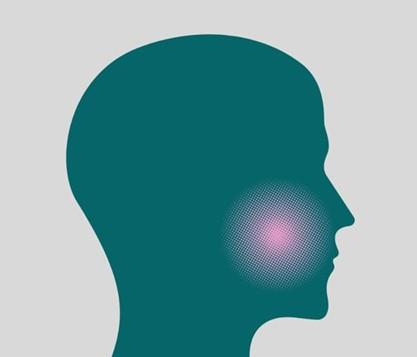Alcohol Flush Reaction: Does Drinking Alcohol Make Your Face Red?
Some people who drink alcohol experience an unpleasant phenomenon called the alcohol flush reaction. The primary feature of the alcohol flush reaction is a red face—or flush—but it can also be accompanied by hives, nausea, low blood pressure, the worsening of asthma, or an episode of migraine. Of particular significance, the alcohol flush reaction is linked to a higher risk of certain types of cancer.
What causes alcohol flush reaction?

The alcohol flush reaction is a type of alcohol intolerance—not an “alcohol allergy”—and is a condition predominantly due to inherited variations in genes of certain enzymes, causing people to metabolize alcohol less efficiently.
During alcohol metabolism, the enzyme alcohol dehydrogenase (ADH) converts alcohol to acetaldehyde, a toxic molecule. The resulting acetaldehyde is metabolized to nontoxic molecules by another enzyme called aldehyde dehydrogenase (ALDH). If acetaldehyde is not metabolized efficiently, it can cause release of histamine and thereby trigger flushing and other unpleasant symptoms.
Variations in the alcohol dehydrogenase gene, ADH1B, and the aldehyde dehydrogenase gene, ALDH2, are well-known variations that lead to higher acetaldehyde levels due to altered alcohol metabolism and are more common among people of East Asian ancestry. People of other races and ethnicities, however, can also carry these variations.
People who take certain medications that alter alcohol metabolism can also experience the alcohol flush reaction. Such medications include those used to treat diabetes, high cholesterol, and infections. In addition, disulfiram, a medication used to treat alcohol use disorder, alters alcohol metabolism so that acetaldehyde builds up when a person drinks alcohol. This causes unpleasant symptoms such as flushing and nausea. The desire to avoid those unpleasant effects can encourage some people to refrain from drinking.
What health problems are associated with the alcohol flush reaction?
People who experience the alcohol flush reaction and who drink alcohol are at higher risk for cancer, including esophageal and breast cancer. The reason for this increased risk is that acetaldehyde is itself carcinogenic.
Can the alcohol flush reaction be prevented?
For individuals carrying gene variations that impair alcohol metabolism, the best way to prevent alcohol flush reaction is to avoid drinking or to limit alcohol intake. Some information found on the Internet suggests taking antihistamines and certain over-the-counter medications to reduce or hinder alcohol flushing, but these medications do not block the damaging effects of acetaldehyde. In fact, hindering alcohol flushing elevates the risk of cancer by enabling higher levels of alcohol consumption and thus higher acetaldehyde production.
Alcohol and Medication Interactions in General
Many over-the-counter and prescription medications can have adverse health consequences when
mixed with alcohol. These medications include many popular painkillers such as acetaminophen (Tylenol); sedative drugs such as diazepam (Valium); and cough, cold, and allergy remedies. People taking medications should read the label and package inserts for possible interactions with alcohol or other drugs, especially if they have multiple drinks on an occasion. People who consume alcohol should ask their doctor or pharmacist about interactions with alcohol and the medications they are taking.
For more information about alcohol and your health and alcohol treatment options, please visit the NIAAA website at https://www.niaaa.nih.gov, Rethinking Drinking at https://www.rethinkingdrinking.niaaa.nih.gov, and the NIAAA Alcohol Treatment Navigator at https://alcoholtreatment.niaaa.nih.gov.
Brooks, P.J.; Enoch, M.A.; Goldman, D.; Li, T.K., Yokoyama, A. The alcohol flushing response: An unrecognized risk factor for esophageal cancer from alcohol consumption. PLOS Med 6(3): e50, 2009. PMID: 19320537
Chen, C.H.; Ferreira, J.C.B.; Joshi, A.U.; Stevens, M.C.; Li, S.J.; Hsu, J.H.M.; Maclean, R.; Ferreira, N.D.; Cervantes, P.R.; Martinez, D.D.; Barrientos, F.L.; Quintanares, G.H.R.; Mochly-Rosena, D. Novel and prevalent non-East Asian ALDH2 variants; Implications for global susceptibility to aldehydes’ toxicity. EBioMedicine. 2020 May; 55: 102753.
PMID: 32403082

